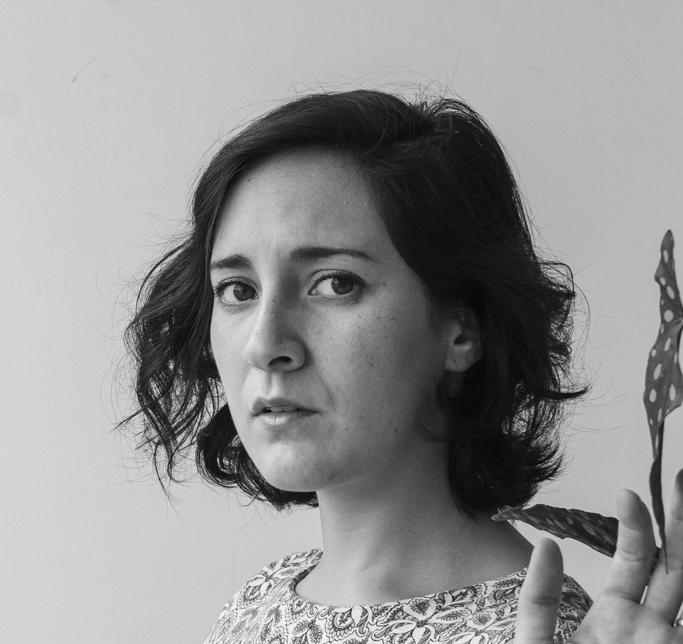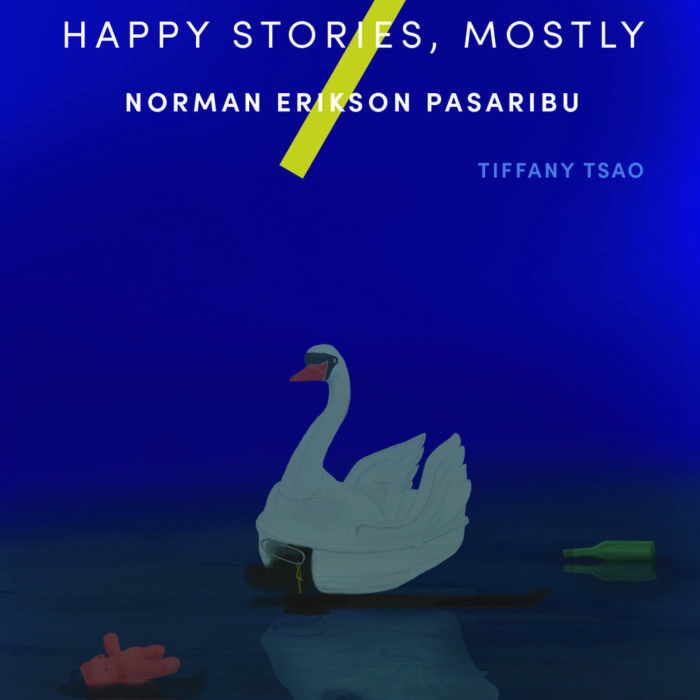You have no items in your cart. Want to get some nice things?
Go shoppingLike an archeological dig, Excavation: A Memoir sifts through the relics of a painful past. The book traces the five-year period between 1986 and 1991, when the author, Wendy C. Ortiz, was involved in a secret relationship with a man fifteen years her senior—a teacher at her junior high school.
Honest and raw are the adjectives that seem most apt to describe this gripping work. The writing thrusts us into the adolescent headspace in all its volatility, confusion, and disempowerment. Throughout, the figure known first as “Mr. Ivers” and then as “Jeff” is the manipulative older man who has violated his position as a teacher in pursuing Wendy from the time she is a thirteen year-old student in his English class to the year she finally turns eighteen.
The urgency of adolescence pushes the narrative forward. It evokes familiar feelings for anyone who remembers what it was like to be a teenager longing for the imagined freedoms and pleasures of adulthood: a set of wheels, a night out with no curfew, a mature love affair. The teenage Wendy can’t grow up fast enough, and Jeff keeps her in a constant hurry with vague promises of a life together.
Chapters are titled by date, drawing from the handwritten journals the author kept as a young person and that she names as her source material in a note at the front of the book. The structure integrates brief sections labeled “Notes on an Excavation” that ground us in the adult narrator’s life beyond an adolescence dominated by her relationship with Jeff. They contain her dawning recognition of the gravity of his actions and provide welcome respites from the narrative in glimpses of the older and wiser adult woman Wendy eventually becomes.
But what is truly excellent about this memoir is its refusal to trot out the familiar roles of perpetrator and victim. In her insistence in laying bare the complexities and contradictions of this strange relationship—and in being so honest about her own emerging sexuality and desires—she achieves an important, eye-opening authenticity. Laying bare the psychology of the teenage mind and its capacity to manipulate and be manipulated, Ortiz strides boldly into uncharted territory in exploring the power dynamics of these kinds of relationships.
A particularly revealing chapter titled “Why I Didn’t Tell” is written in list form and includes the following items (among several others):
I didn’t want to be average.
I didn’t want it to end.
I was afraid of being blamed.
The truth is, I did tell.
I told an adult.
I was ashamed, so much so that I wasn’t sure I could live through something like that.
I wanted love.
This poem-like litany of reasons forces us to hold many contradictory ideas at the same time and to understand that all of them can be true. Later in the passage, Ortiz makes clear the weight of such a secret as she imagines what would happen if she were confronted with a young girl in a similar situation. She says she would ask careful, simple questions. Among them: What do you have to gain by keeping it a secret? And what do you have to lose?
Wendy C. Ortiz on Excavation
Wendy C. Ortiz and I corresponded by email about her memoir, which was published by Future Tense Books in 2014. She is a past contributor to Litro: Love Letter to Olympia #106.

Litro: A long time passed between your experiences with the man you call “Jeff” and your writing of Excavation—what prompted you to write the book? Was the lapse of time necessary to the writing?
Ortiz: I knew in 2000, when I started a graduate program in creative writing, that this would be the manuscript I’d work on. In the fourteen years since its first draft, it’s had a number of eyes on it and been subject to my own editorial “process,” which sometimes meant it stewed and simmered without being tinkered with much, while at other times I dove in and revised madly. Fourteen years, to me, was absolutely necessary, not only to the writing, but probably also my psyche.
Litro: The Rolling Stone story about a rape at the University of Virginia has recently called attention to the issue of “silencing”—did you ever feel silenced or discouraged from telling your story?
Ortiz: The culture both knowingly and unknowingly enforces silence among victims of sexual abuse and rape. The chapter in Excavation that was hardest to write, “Why I Didn’t Tell,” speaks to the silencing—from individuals, from the culture, and from myself. And certainly there was an effort to silence from my teacher.
Litro: We hear news almost daily about teachers crossing lines with students, but relatively few memoirs have been written on the topic. Do you think memoir as a genre plays an important role in our culture in terms of addressing social problems like this one? Do you have any theories as to why educator abuse of students is so prevalent in our society right now?
Ortiz: The genre of memoir plays many roles in our culture and there’s always space for (some) memoirs to counter or address social problems with intention.
Educator abuse of students, at its core, is about power dynamics. I believe it has always been prevalent. We’re seeing what is possibly/probably the tip of the iceberg in stories that have made their way to news media.
Litro: You chose to change people’s names in the memoir—to protect their privacy, as you explain in your author’s note at the front of the book. Perhaps the most notable name change is Jeff’s. Why did you make that decision?
Ortiz: Initially I had imagined keeping his name in the memoir. An early mentor had even remarked, “Changing names is a way to protect the innocent, and he is not innocent. Keep his name.” The reality of the situation is that I wanted to avoid the possibility of litigious action from Jeff so I chose to change his name along with everyone else’s but mine. I did, however, make a point of not changing his name much.
Litro: You are incredibly brave in portraying your own emergent sexuality as a young woman in this book in ways that are sometimes uncomfortable to read because they disturb traditional notions about the roles of victim and perpetrator, especially with regard to questions of power and desire. Thank you for taking these risks in order to tell your story with so much honesty and nuance. I would guess some readers will have knee-jerk reactions—“she was asking for it,” etc.—instead of grappling with the ambiguities. Have you experienced this? Did you think about this conundrum and about putting yourself out there so boldly as you were writing?
Ortiz: In all honesty, I haven’t encountered any knee-jerk reactions firsthand (yet?). I make a point of not reading comment sections, so I’ve probably avoided some of the places where the knee-jerk reaction would live. I did come across some comments accidentally and one word stands out to me: the claim that as a victim of sexual abuse I was “brainwashed” into believing it was my fault. These were definitely knee-jerk reactions because the book had just come out and the commenters could not possibly have read it yet. I’d like to imagine they would read the book and come to a different and more complex conclusion.
I absolutely considered this and more as I was writing the book, and this partially accounts for why it took the time it did to publish. Many times I wondered how this story would land not only with anonymous readers but also the people closest to me. I’ve been highly, deeply encouraged by other writers also willing to put themselves out so boldly in their own work. I walk in their footsteps.
Litro: There is a pivotal moment in the book in which the narrator finally tells Jeff that she loves him. What is the implication of telling that “secret,” as you refer to it? What is its place within this much larger work of truth telling?
Ortiz: Truth-telling, in my experience, is never easy, clean, or neat. The implication of telling this particular “truth” (which was truth in the moment, but has shifted over time—let’s keep troubling the narrative of what “truth” means!) is something I imagine every reader will interpret differently for themselves, and I hope they do engage with the work this way. I’ve had a number of diverse readers, both strangers and not, tell me privately all the different meanings the book, the situation, the truth-telling had for them—how it resonated, and in some cases, how they made a big decision about a relationship in their current lives that no longer served them, because of the book. Truth-telling, then, has the potential to unleash action on many levels, and of course it’ll be different for each reader, and maybe even change with each reading.
Litro: What is your next writing project?
Ortiz: Hollywood Notebook will be published this year by Writ Large Press. It’s a very different voice than Excavation, much more fragmented, prose poem-like, and it is, technically, memoir.
I have a few different writing projects in the works, including an attempt at adapting a short essay into a one-act play for a specific project, as well as some collaborations with other writers. Meanwhile, book-length writing projects are still in the early infusing stages.

Andrea Calabretta
Andrea Calabretta is a writer and editor based in Philadelphia. She is currently at work on a book about her experiences in Tunisia during the so-called Arab Spring.





